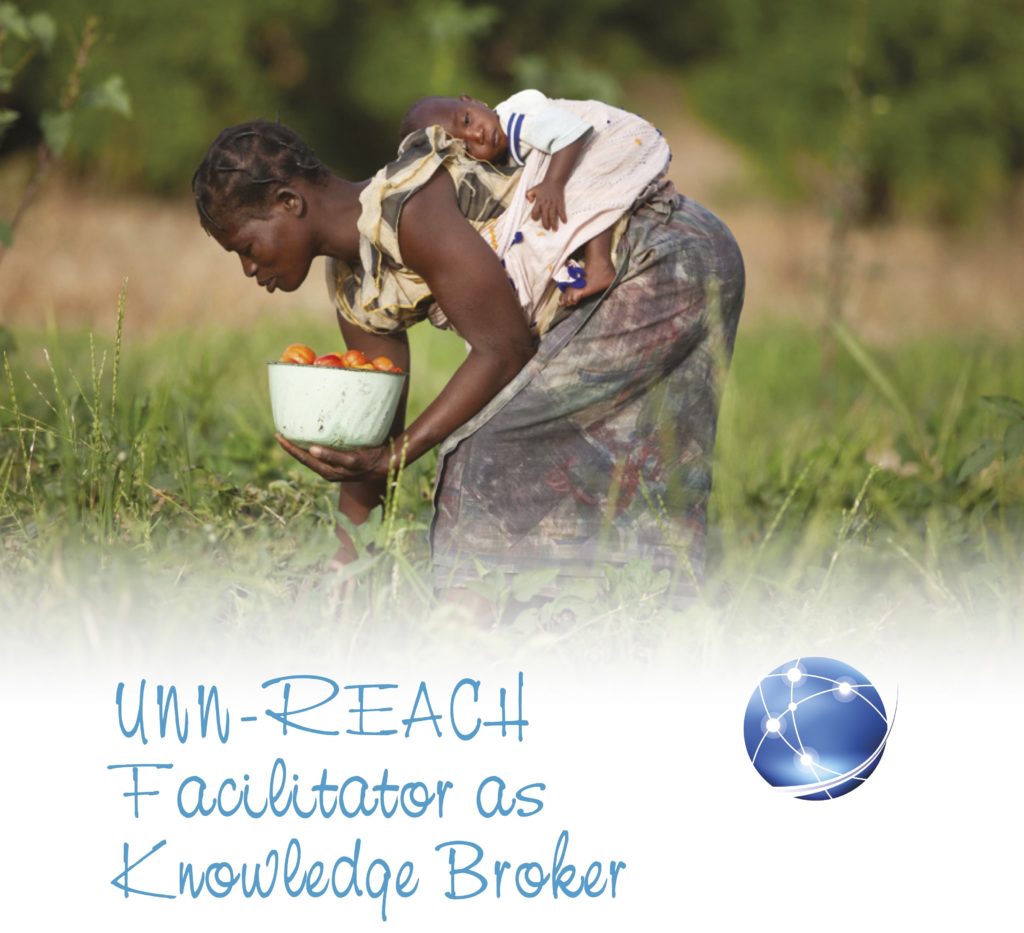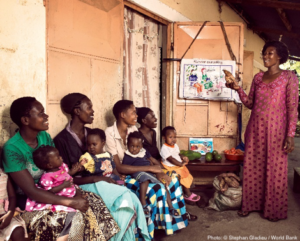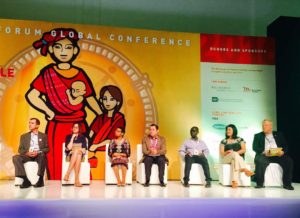UNN-REACH Facilitator as Knowledge Broker
We are grateful for the opportunity to have partnered with the International Food Policy Research Institute (IFPRI) and the SUN Movement Secretariat on the Knowledge for Implementation and Impact Initiative (KI3). This article describes a study we conducted as part of KI3 examining the role of knowledge brokering within the SUN Movement in various countries. This article was first published in UNN/UNSCN Nutrition News (Issue 4, 2019) as part of the UN Network’s ‘Tales Be Told’ series, which captures inspirational country stories. A PDF of the article can be found here.
Thanks to UNN/UNSCN for providing permission to share with our audience.
Interested to learn more about KI3? Read our previous blog here or the SISN activities page here.
Introduction
When a UNN-REACH facilitator begins an assignment, things move fast. Meetings are scheduled with representatives from government ministries, United Nations agencies, civil society, the donor community, the private sector and others, as needed. Questions are posed. Discussions take place on the various interventions. Water and sanitation. Access to clinics. Homestead gardens. Women’s education. Maternity protection. Poverty reduction. Family Planning. Equity.
The facilitator describes how these interventions can contribute to improved nutrition; that is, how to mainstream nutrition into other sectors.
Ideas start to percolate about how the work that is already in play can be tweaked with a nutrition lens, coordinated and streamlined, based on the particularities of the country, UNN diagnostics, analogous studies and experiences in other countries. The facilitator helps track actions to establish a baseline for national nutrition plans.
Many of the actors are gathered around the table, with the UNN-REACH facilitator playing a neutral role: mediating conflicts, untangling competing interests and setting up the conditions for consensus. These efforts, along with the continuous coaching of the SUN Government Focal Point, lead a diverse group to forge a multi-sectoral nutrition plan with measurable outcomes. Throughout this process, the facilitator remains in the background, with the government always as the lead.
Then someone asks the facilitator what they really do, but it is difficult to explain. The task itself is abstract, comprised of hundreds of decisions, conversations and data points whose level of detail confounds a concrete, outcome-based explanation.
How the study began
The Knowledge for Implementation and Impact Initiative (KI3) is a consortium that came together in 2016. It is led by three entities: the SUN Movement Secretariat (SMS), the International Food Policy Research Institute (IFPRI) and the Society for Implementation Science in Nutrition (SISN) – including Cornell professor David Pelletier and his team. KI3 also engages other actors in the SUN community such as UNN. This study examined the role of knowledge brokering within the SUN Movement in various countries.
The researchers wanted to know what UNN-REACH facilitators had in common with knowledge brokers in other fields and how this was unfolding at the country level. While knowledge brokering has been studied extensively in public health, there was scant research that focused primarily on nutrition, which they wanted to fill in. The SISN team made sure to include the experiences of various actors and will explore the knowledge brokering role of other country actors in a second phase (e.g. SUN Government Focal Points and advisors in the National Information Platforms for Nutrition [NIPN]).
The research described in this report focuses on the UNN-REACH facilitator through the lens of a knowledge broker. As it delineates the various roles, it also scans for gaps and describes a broader pattern of interconnectedness with other knowledge brokers – with the intention of outlining a path towards an increasing awareness of the importance of this work.
What is a knowledge broker?
Knowledge brokers are people or organizations who facilitate the access, interpretation, adaptation and utilization of information to meet the needs of implementers or policy makers. These are people with strategic capacity. They identify challenges, connect people and institutions, seize opportunities, sift through relevant studies and steer the ship. In 2016, social scientists Glegg and Hoens identified five role domains of the knowledge broker (Fig 1). These were applied to UNN-REACH facilitators to both categorize the many aspects of the job as well as to ask if the label of knowledge broker was a good fit.
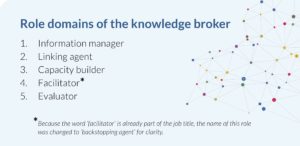
Figure 1: Role domains of the knowledge broker
How the study was carried out
The research team conducted interviews (Fig 2) with seven UNN−REACH facilitators who served in international and national posts in Burkina Faso, Chad, Lesotho, Mali, Mozambique, Myanmar and Zimbabwe. One interviewee had also served the UNN Secretariat, which leads UNN-REACH.
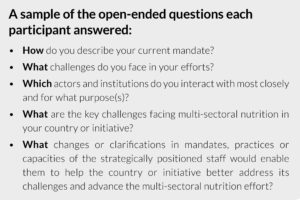
Figure 2: Example open-ended questions
What the team found
Answers were coded using N-vivo, a software for qualitative data analysis, and grouped by thematic areas. Not surprisingly, the similarities between the roles of knowledge brokers and the UNN-REACH facilitators outnumbered the differences.
Similarities include the importance of gaining trust among the various actors; being flexible and responsive; mediation skills; the ability to communicate clearly and across cultural differences; self-confidence; the ability to foster consensus; and problem-solving by adapting information to meet the needs of policymakers.
Another document used in this analysis is that by Maag et al., who created a set of indicators to assess the varied but often invisible contributions of knowledge brokers. These authors identified a broad spectrum of processes carried out by knowledge brokers, abbreviated as KBs in the below list.
- Where a KB identifies knowledge needs and gaps, a UNN-REACH facilitator describes intervention coverage gaps through mapping.
- Where a KB integrates relevant knowledge from various sources and from different knowledge holders, a UNN-REACH facilitator employs UNN analytics, such as the Multi-sectoral Nutrition Overview and the UN Nutrition Inventory, that harness the knowledge of various United Nations agencies.
- Where a KB creates common ground, a UNN-REACH facilitator does the same through creating and nurturing a neutral nutrition space and dialogue. This can also take the form of linking the emergency community to the development community to create a humanitarian development nexus.
- Where a KB enables mutual learning among the actors, a UNN-REACH facilitator’s job is sometimes as simple as putting people in touch with one another, including SUN focal points from other countries.
- Where a KB facilitates the development of products and their dissemination, a UNN-REACH facilitator enables the completion of UNN analytics as well as the development of national nutrition policies, strategies and a common results framework on nutrition as well as national nutrition communications and advocacy strategies.
- Where a KB organizes various types of events, a UNN-REACH facilitator supports SUN Government Focal Points and other government officials working in nutrition coordination platforms to organize national nutrition forums such as the one in Chad (2015) and Mali (2019).
The most prominent difference in the two roles was that of expertise. A knowledge broker is typically an expert on a topic, because the role involves understanding research and making it more accessible. While many UNN-REACH facilitators come from a nutrition background, this is not essential to success in the role; indeed, some of the best facilitators are not nutrition experts per se. Instead, the skills that are foremost for a UNN-REACH facilitator involve neutral moderation towards multi-sectoral nutrition governance – the ability to listen and put the pieces of the puzzle together.
Other differences revealed in the study are needed by UNN-REACH facilitators to carry out their roles, but might be less crucial for a knowledge broker: remaining neutral; taking a ‘back seat’; mastering the tools of UNN-REACH; and bringing a process to the ‘finish line’. In other words, making sure a multisectoral nutrition plan is in place before their term ends.
Main conclusions
One of the outcomes of this study was to itemize the multifaceted tasks of a UNN-REACH facilitator, to bring what happens behind the scenes forward. Another salient point that emerged is the value of a knowledge brokering team as opposed to the idea that one individual can cover all the bases. Rather, a team is needed who can build on each other’s strengths.
One of the ways this happens for UNN-REACH facilitators is knowledge sharing between national and sub-national levels; another is by supporting the SUN Government Focal Point to carry out their role. UNN tools such as the Nutrition Stakeholder and Action Mapping help establish multi-disciplinary working teams, which serve as a typical knowledge brokering team, prompting actors to share data for the common good. This helps diverse actors know how to better target resources and scale up nutrition actions.
Another aspect of this is how the UNN-REACH facilitator as knowledge broker helps actors exchange existing guidance, resources, data and experiences to avoid knowledge overload and crowding in the nutrition community. Countless nutrition studies have already been conducted. What is needed is not, as is too-often recommended, ‘further research’, but rather, accessing relevant studies. To this end, KI3 also includes a matrix of existing tools that will help various actors access the information they need in a timely manner. In the meantime, SISN will complete the next phase of the study by interviewing SUN focal points and NIPN advisors, to better envision the work and complementarity of knowledge brokering teams to support multi− sectoral nutrition
A PDF of this study report can be downloaded here.
We thank the KI3 Project Team for their contribution to this blog. Interested in learn more about KI3? Read our previous blog here, the SISN activities page here or contact us.
Have an idea or a comment on any of the issues discussed above? We welcome your feedback – you can comment on this post on our LinkedIn feed or write to us at info@implementnutrition.org.

